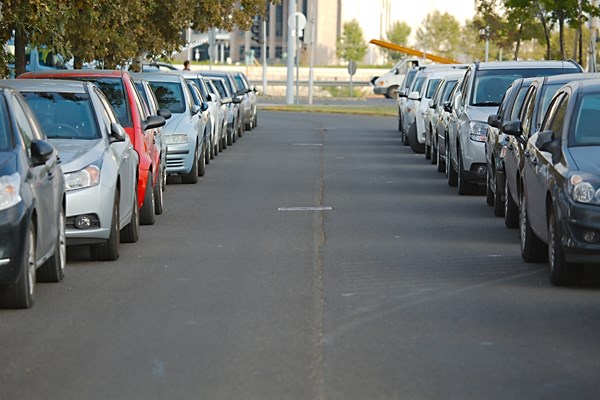Column: Restricted parking zones make sense
Oct 01, 2023

Land costs are exceptionally high in Hawaii and yet, unfettered expectations to “free” on-street parking persists, even as communities are overrun with vehicles and truly affordable transportation choices are under-prioritized.
The restricted parking zone (RPZ) program proposed in Bill 20 (2023), currently before Honolulu City Council, provides a strong framework for thoughtful neighborhood-level discussion around on-street parking management. The bill aims to help local neighborhoods better manage land in their communities and reduce public subsidies to what can essentially be called personal car storage. Among other things, residents could benefit from the continuous rotation of cars on their street — opening up parking that’s reasonably closer to their homes.
Many have expressed concerns around the privatization and subsidization of public streets, and these are valid concerns that should be raised during deliberation. However, the status quo already allows many streets to be used for personal car storage with others disproportionally footing the bill. According to the American Community Survey, the 43% of Oahu households that have one car or less pay more than their fair share of road maintenance expenses under the current system, as compared to others with multiple vehicles and parking needs.
About 20% of Oahu’s public roadways is dedicated to on-street parking. That’s 3.2 times the area of Waikiki, and much of this is unmanaged and ostensibly “free,” according to the City and County of Honolulu’s 2021 Right-of-Way Widths for Planned Improvements. Even when households have their own garage or driveway space, those with abundant on-street parking are 2.5 times more likely to park on the street. Hence, individuals make a choice to use public space over their private property.
Most of these on-street stalls are completely free to drivers while each one of these spots on average is worth approximately $22,500 ($3,100 for construction and $19,400 for the value of the land itself), according to “The Costs of Parking in Hawaii” report published in 2019 by Ulupono Initiative. The RPZ program aims to assess a per-stall user fee in order to help manage these lands more successfully, possibly even creating greater access to parking spaces.
Since 2000, population growth in Hawaii is just over 16%, but vehicle growth is up 29% — so vehicles are growing almost twice our population growth. What we see in our state is also happening elsewhere, where unmanaged parking is essentially encouraging more vehicle use. In the New York region, researchers found that when parking was plentiful and available, vehicle ownership rates increase by 18% even when transit is accessible, according to Berkeley Public Policy Journal.
In communities that are rightly concerned with too many vehicles, having a system to manage on-street parking can be transformative for dealing with these impacts, especially those associated with monster homes, as articulated by community members in public hearings.
When something has been essentially free, any effort to manage or price it is often seen as taking away something critically important. But there are real, often hidden costs to parking, both in terms of land value and the cost to our communities resulting from automobile over-dependence. The status quo leads to overrun communities, less-affordable transportation choices, and the lack of access to parking for those who really need it. RPZ will give residents back their neighborhood and a way for the larger community to achieve our transportation future.
Kathleen Rooney is the director of transportation policy and programs at Ulupono Initiative. This editorial was published in the Star-Advertiser and can also be viewed here.
Categories
- Clean Transportation (104)
- Renewable Energy (67)
- Agriculture Story Series (20)
- Local Food (112)
- News Releases (19)
- Promotions and New Hires (4)
- Less Waste (8)
- Freshwater (17)
- Our Ohana (15)
- In the News (5)
- careers (1)
- Blog (1)
- clean energy (2)
- PUC (1)
- Ulupono Video Podcast Series Talk Story Room (1)
- Bills (1)
- Legislature (1)
- DA BUX (1)
- Electric Vehicle (1)

